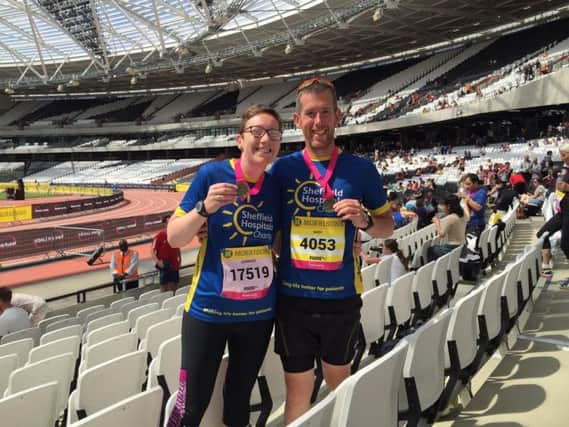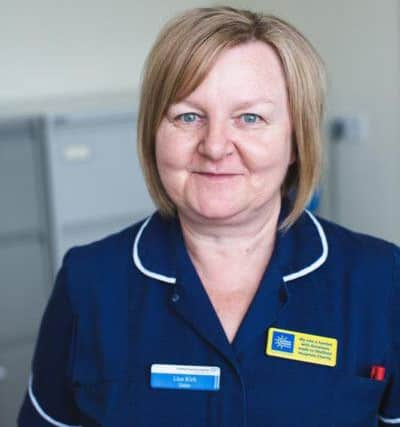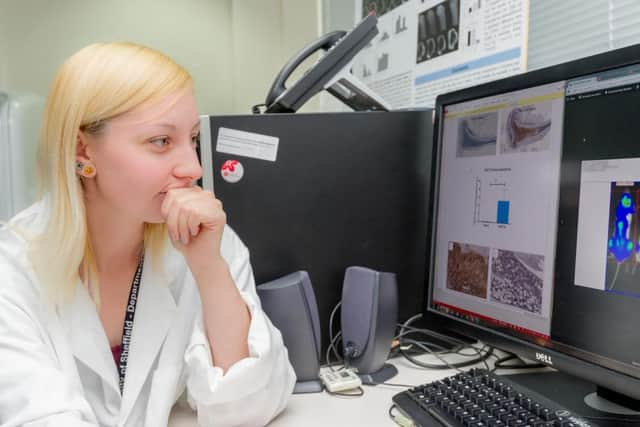FEATURE: Charity cash is life blood of Sheffield service


Although based in Sheffield, the department provides specialist care for patients from all across Yorkshire and North Derbyshire.
Thanks to an army of inspirational community fundraisers, the charity is able to fund significant and lasting improvements to the treatment of the department’s patients.


Advertisement
Hide AdAdvertisement
Hide AdYoung cancer patients have been made more comfortable with a new space for teenagers where they can sit and relax to watch films, play computer games or have positive interactions with other cancer patients while undergoing chemotherapy treatment.
‘Ambulatory care’, also known as outpatient care, has also been made possible by the fundraising efforts of supporters. This form of care is hugely valued by patients as it reduces the stress, expense and the discomfort of travelling to and from the hospital every day for chemotherapy.
Thanks to the charity, patients can stay with their loved ones in two flats close to the hospital, which means they only have a short daily walk to receive their treatment.
An ambulatory care co-ordinator, who supports them during their stay, has also been funded.


Advertisement
Hide AdAdvertisement
Hide AdAndrew Lockwood, aged 31 from Monk Bretton, became a fundraiser after wife Jenny was treated by the haematalogy fepartment for Hodgkin’s Lymphoma.
Andrew said: “Jenny needed to be monitored very closely. Barnsley was too far away to keep going back and forth, so we were offered ambulatory care, which meant she had a support nurse and private flat to stay in. “I cannot tell you how much of a Godsend basic things like being able to eat hot meals and get help with day-to- day chores were. I am convinced it played a big part in Jenny’s recovery.”
Sheffield Hospitals Charity’s support doesn’t end there. Another vital piece of the care jigsaw made possible by donations is a clinical psychologist. This post aids patients coming to terms with what is often a difficult diagnosis and helps manage their anxiety and fears throughout treatment.
The psychologist also trains other staff to provide further emotional support to patients and helps them manage their own feelings whilst working in what is sometimes a challenging hospital environment.


Advertisement
Hide AdAdvertisement
Hide AdCharity cash is behind another of the department’s best known staff, Lisa Kirk, a specialist haemophilia nurse.
Lisa said: “My role offers huge physical and psychological benefits to patients. I am their main point of contact if they need to speak to someone. I offer practical advice about their disease and treatment and also about their lifestyle and diet.
“We know keeping a check on general health and wellbeing significantly boosts treatment, so having someone to speak to patients about their day-to-day issues has far reaching benefits.
“It also gives me the chance to spot any other health problems so they can be dealt with quickly.”


Advertisement
Hide AdAdvertisement
Hide AdWhilst staff and services remain at the frontline of patient care, it is research which is key to curing disease and that’s no different in haematology. Sheffield Hospital Charity’s latest fundraising mission is to raise money to bring in talented young researcher Georgia Stewart to work on a ground-breaking new treatment that could cure myeloma, a cancer of plasma cells in the bone marrow. At the moment this is a terminal condition, with an average life expectancy of five years.
Georgia, aged 23, from Woodseats, is a final year biomedical science student at Sheffield Hallam University.
Georgia said: “Whilst on placement I learned a great deal about myeloma and the devastating effects it has.
“The current treatments and therapies for myeloma only induce remission and are not a cure for the cancer.
Advertisement
Hide AdAdvertisement
Hide Ad“I was able to work on a new therapy that is promising. It uses genetically engineered viruses to kill the cancerous myeloma cells, without affecting non-cancerous cells.
“I’m optimistic that this therapy has clinical potential, and I would like to continue with this work in order to reach a point, where I can trial it with myeloma patients. Sheffield Hospitals Charity funding can make this happen, but of course relies on further fundraising donations. Further funding would mean I could continue to develop this therapy which I wholeheartedly believe in, and continue to work with the team.
“ It could potentially change and extend the lives of those that might suffer from myeloma in future - and that’s a goal all of us want for patients.”